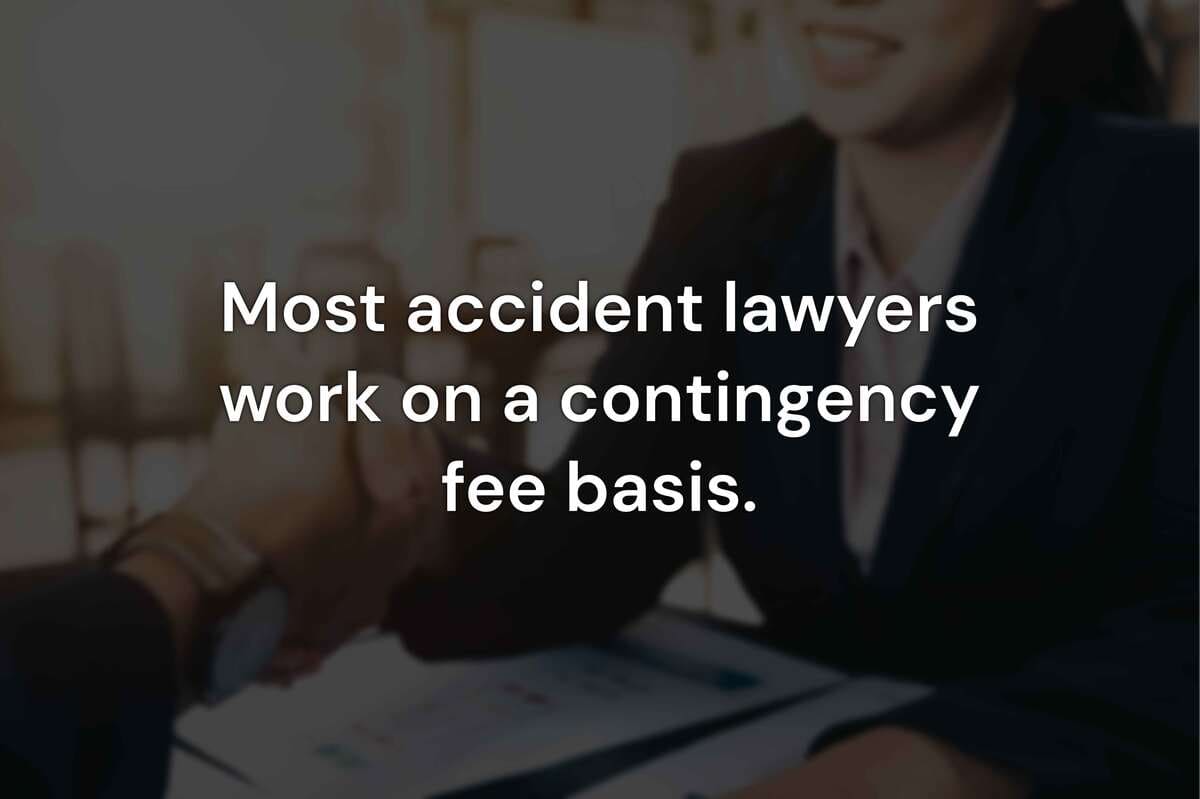Most accident lawyers charge a contingency fee, which means they only get paid if they win your case. The typical fee ranges from 33% to 40% of your final settlement or jury award. In some cases, the percentage can vary based on whether the case settles before a lawsuit is filed or goes all the way to trial. Understanding how these fees work—and what they cover—can help you choose the right attorney and avoid unexpected costs.

What Is a Contingency Fee?
A contingency fee is a payment structure where the lawyer’s fee is contingent on the outcome of your case. In other words, you owe nothing up front, and if the lawyer doesn’t recover money for you, you don’t pay a fee.
Here’s a common fee structure:
- 33.3% if your case settles before filing a lawsuit
- 40% if the case goes to trial or requires arbitration
- Variable rates in some firms, depending on complexity or appeal
This arrangement benefits clients who may not have the money to pay legal fees up front, especially after a serious injury that prevents them from working.
What Costs Are Not Included?
In addition to the lawyer’s percentage, there are often case-related expenses. These can include:
- Court filing fees
- Fees for obtaining medical records
- Expert witness charges
- Deposition costs
- Investigation or accident reconstruction fees
- Postage, travel, and document preparation
Some attorneys will advance these costs and deduct them from your settlement. Others may expect you to reimburse expenses regardless of the outcome. Always ask what’s included in your agreement.

What Should Be in a Fee Agreement?
A written agreement—often called a retainer agreement—should outline the following:
- The percentage the lawyer will charge
- When the fee may increase (e.g., if a lawsuit is filed)
- Who covers case costs
- What happens if you terminate the lawyer mid-case
- How settlement funds will be distributed
Make sure you receive a copy of the signed agreement and ask questions before signing. A good attorney will be transparent and explain each section.

Will I Get Less If the Lawyer Takes a Big Cut?
While 33–40% may sound like a lot, research shows that clients who hire attorneys typically recover more than those who represent themselves, even after legal fees are deducted. That’s because experienced lawyers know how to value claims properly, negotiate with insurers, and pursue full compensation.
For example, if your case settles for $90,000 and your attorney takes a 33.3% fee ($30,000), your net would be $60,000—minus case costs. Without legal help, many victims settle for far less or run into delays and denials that jeopardize their claim.
Working with a personal injury lawyer ensures that your case is handled efficiently, and that you receive professional advocacy from day one.
For more insight into how attorneys are paid, we’ve written about how personal injury lawyers get paid—including how case costs and liens can impact your net recovery.
If you’re currently comparing firms, we also shared tips on how to choose a personal injury lawyer based on experience, communication style, and prior case results.
And if you're wondering whether hiring a lawyer is even necessary for your situation, our post on whether you need a personal injury lawyer breaks down the types of cases that benefit most from legal representation.




























































.avif)






















